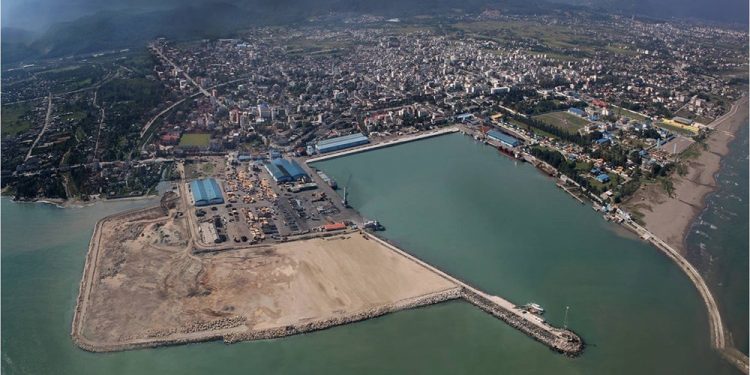New York: The US will take into consideration the impact of American sanctions against Tehran will have on India’s Chabahar Port project in Iran that provides a surface link between New Delhi and Kabul, according to a senior State Department official.
“When it comes to Chabahar, we are in the process of reviewing the imposition of sanctions,” Alice Wells, the Principal Deputy Assistant Secretary for South and Central Asia, told IANS in an interview.
“So that process (of review) is underway and we take India’s concerns and interest in being able to expand exports to Afghanistan and to increase Afghanistan exports to India, very seriously.”
“As we look at the reinforcement of the Joint Comprehensive Plan of Action (JCPOA) or the sanctions, we will, I think carefully, evaluate the impact that it could have, for instance on Afghanistan,” she added.
President Donald Trump has pulled the US out of the nuclear deal or the JCPOA signed between Iran and the five permanent members of the UN Security Council along with Germany and the European Union (EU), to end sanctions in return for Tehran stopping nuclear weapons development.
Washington has begun re-imposing sanctions on Iran and warning those trading with it would come under its ambit.
“Certainly the wheat exports that India has sent to Afghanistan have been critical particularly at a time when the drought is having such an impact and will certainly impact the supplies that will be available to the Afghan population this year,” Wells said.
Last year, New Delhi sent 1.1 million tonnes of wheat as aid to Afghanistan through Chabahar and the road link it built to connect it to that country.
India is investing $500 million to develop the Chabahar Port and the road link from there to Afghanistan gives access to that country bypassing Pakistan.
Relations between the US and India are on “an upward trajectory” and “this is one of the most dynamic and strategic partnerships that the US enjoys,” Wells said, adding that “under the Trump administration, India features prominently in both our approach to South Asia region” and the Indo-Pacific strategy.
“In any mature partnership there are sometimes going to be differences over tactics and we are able to have very constructive conversations on our approaches to the region and to the neighbourhood,” Wells said.






































